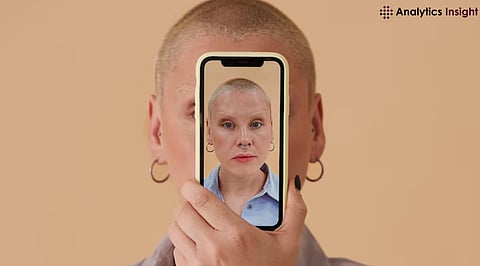

FaceAge AI is revolutionizing healthcare by accurately predicting cancer risk and biological age from a simple selfie. This cutting-edge technology empowers doctors to create more informed treatment plans, potentially transforming patient outcomes.
A selfie can now do more than capture a smile, it can expose health secrets. FaceAge AI, an innovative technology launched in 2025 by Mass General Brigham, scans facial features to forecast cancer risk and biological age.
This costs around $50 for individual use and can potentially help doctors plan treatments by estimating the age of the body in actuality. This article delves into the features of FaceAge AI, its application in cancer treatment, and its potential to revolutionize health evaluations.
FaceAge AI is remarkable for its simplicity. By learning from one photo, it predicts the biological age, health of the body about chronological age. It has been trained on almost 59,000 photographs of healthy individuals and analyzes features such as skin texture, shape of the eyes, and facial wrinkles.
Recent research, including a study published in The Lancet Digital Health, demonstrates it can predict cancer survival, giving doctors another method of determining the health of patients without intrusive tests.
The device's capacity to identify cancer risk lies in comparing more than 6,000 photographs of cancer patients. Research found that patients with cancer tended to look five years older than they were.
Older biological age as measured by FaceAge scores were associated with worse survival chances, particularly among patients receiving palliative care. This indicates the AI identifies very slight indicators of cell aging, enabling physicians to determine whether intensive treatment is appropriate for a patient's condition.
FaceAge AI analyzes selfies through deep learning. Algorithms pick up facial traits, like wrinkles or skin color, to foretell health. Unlike other scans or blood tests, this one only employs the camera of a smartphone.
The AI applies a multimodal method that includes the analysis of photos combined with genetic data, correlating facial features with genes responsible for aging. Results are ready in minutes, making it a convenient tool for doctors or even those at home who want to know more about their health.
In cancer care, FaceAge AI has massive benefits. It assists physicians in personalizing plans by biological age, not age at birth. For instance, a 60-year-old patient with a lower FaceAge would likely respond to chemotherapy better than one who is more biologically aged.
In palliative care, it enhanced six-month survival predictions, supporting comfort-oriented care decisions. Early detection is a bonus, identifying high-risk patients before symptoms potentially even save lives.
FaceAge AI is not only for cancer. The capacity to estimate biological age can be used to identify risks for other illnesses, such as heart disease or diabetes. In health, it could point to dietary or exercise changes to retard aging. For hospitals, it's a cheap way to screen large numbers, particularly in regions with restricted medical access. The simplicity of the tool can make it a game-changer for global health.
Promising though it is, FaceAge AI has some challenges to overcome. More studies need to be done to demonstrate that it enhances treatment outcomes. Accuracy can vary depending on skin color or ethnicity, a possible issue of fairness.
Privacy is an issue too; selfies to the cloud must be protected against data breaches. Trials with 50 patients will improve its predictions on an ongoing basis, but wide-scale use is two or three years down the road.
In an AI-dependent world, FaceAge AI follows trends toward non-invasive testing. Its $50 personal use, or incorporation into hospital networks, price tag makes it affordable. In comparison to expensive scans, it's economical.
As more studies are conducted, it may accompany wearables or telemedicine apps, allowing individuals to monitor their health at home. The technology indicates a move toward personalized medicine, where treatments meet the body's actual condition.
FaceAge AI portends a day when health screening is as simple as taking a selfie. In 2030, it might forecast risk for several diseases or inform anti-aging treatment. In cancer treatment in the meantime, its application is also promising, providing physicians with a new way to look at patient health. Not flawless, it's still a giant leap forward to wiser, simpler diagnostics.
FaceAge AI transforms selfies into effective wellbeing tools that can determine cancer risk and biological age from one photo. Helping cancer treatment, early risk detection, and access to health checks for everyone makes it a 2025 trendsetter. Before science can overcome its limitations, this innovation might redefine the measurement of health and justify the statement that a picture is worth a thousand words.
